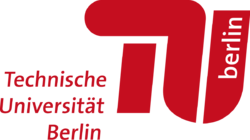Difference between revisions of "Technical University of Berlin"
m (Setting a standard, question mark?) |
(Deutsche Bank funding) |
||
| (One intermediate revision by one other user not shown) | |||
| Line 11: | Line 11: | ||
|motto_translation=German | |motto_translation=German | ||
}} | }} | ||
| − | '''The Technical University of Berlin''' is an university in [[Berlin]], [[Germany]], founded in the [[1800s]]. It has been the Alma mater of several researchers that helped with the [[Apollo program]] | + | '''The Technical University of Berlin''' is an university in [[Berlin]], [[Germany]], founded in the [[1800s]]. It has been the Alma mater of several researchers that helped with the [[Apollo program]]. Also among its list of former alumni feature former Nazi officials such as Albert Speer. Wernher von Braun and several others from the [[university]] became part of [[Operation Paperclip]]. |
| + | |||
| + | ==Deutsche Bank control== | ||
| + | In [[2006]], just two years before the outbreak of [[the financial crisis of 2008]], [[Deutsche Bank]] had reached an agreement with the [[Humboldt University of Berlin]] and the Technical University of Berlin to establish a research institute that would primarily deal with the risks of the [[financial markets]] and their products. Deutsche Bank financed the so-called "Quantitative Products Laboratory" as the sole funder with three million euros per year. Initially, no details of the deal were disclosed. But an outraged professor made the contract public in the spring of [[2011]].<ref name=sud>http://www.sueddeutsche.de/karriere/humboldt-universitaet-und-tu-berlin-deutsche-bank-mischt-bei-uni-forschung-mit-1.1103047</ref><ref>https://www.infosperber.ch/wirtschaft/konzerne/warum-viele-professoren-so-industrie-und-bankenfreundlich-sind/</ref> | ||
| + | |||
| + | The agreement stipulated that Deutsche Bank set the tone in the research institute. The institute, it was said, was located "in close proximity to Deutsche Bank", as it was aimed at "close cooperation in terms of content". Furthermore, the contract stipulated that the choice of the two professorships had to be made "in agreement with Deutsche Bank". In the case of individual research projects, Deutsche Bank was even allowed to decide which results were to be published and which were not. The results must be submitted to the bank for approval, it is written in the contract. This is to ensure that the "interests of Deutsche Bank are not affected". The mention of the bank by name in a publication is "in any case only permissible with the prior written consent of Deutsche Bank".<ref name=sud/> | ||
| + | |||
| + | |||
{{SMWDocs}} | {{SMWDocs}} | ||
==References== | ==References== | ||
{{reflist}} | {{reflist}} | ||
Latest revision as of 05:40, 30 April 2024
(University) | |
|---|---|
 | |
| Motto | Wir haben die Ideen für die Zukunft (German) |
| Formation | 1879 |
| Headquarters | Berlin, Germany |
| Type | Public |
| Sponsored by | Deutsche Bank |
| One of the 4 Universities in Berlin, home to a few former top Nazi-officials. | |
The Technical University of Berlin is an university in Berlin, Germany, founded in the 1800s. It has been the Alma mater of several researchers that helped with the Apollo program. Also among its list of former alumni feature former Nazi officials such as Albert Speer. Wernher von Braun and several others from the university became part of Operation Paperclip.
Deutsche Bank control
In 2006, just two years before the outbreak of the financial crisis of 2008, Deutsche Bank had reached an agreement with the Humboldt University of Berlin and the Technical University of Berlin to establish a research institute that would primarily deal with the risks of the financial markets and their products. Deutsche Bank financed the so-called "Quantitative Products Laboratory" as the sole funder with three million euros per year. Initially, no details of the deal were disclosed. But an outraged professor made the contract public in the spring of 2011.[1][2]
The agreement stipulated that Deutsche Bank set the tone in the research institute. The institute, it was said, was located "in close proximity to Deutsche Bank", as it was aimed at "close cooperation in terms of content". Furthermore, the contract stipulated that the choice of the two professorships had to be made "in agreement with Deutsche Bank". In the case of individual research projects, Deutsche Bank was even allowed to decide which results were to be published and which were not. The results must be submitted to the bank for approval, it is written in the contract. This is to ensure that the "interests of Deutsche Bank are not affected". The mention of the bank by name in a publication is "in any case only permissible with the prior written consent of Deutsche Bank".[1]
Sponsor
| Event | Description |
|---|---|
| Deutsche Bank | German bank |
Alumni on Wikispooks
| Person | Born | Died | Nationality | Summary | Description |
|---|---|---|---|---|---|
| Boris Floricic | 8 June 1972 | 17 October 1998 | Germany | Hacker | German hacker/phreaker with strong interest in cryptography found dead in a park. Ruled a suicide. |
| Sonja Jost | 1980 | Germany | Inventor Businessperson | Industrial engineer/chemist/businesswoman in the chemical-pharmaceutical sector | |
| Abdul Qadeer Khan | 1 April 1936 | Pakistan | Scientist | Father of the Islamic Bomb | |
| Philipp Mißfelder | 25 August 1979 | 13 July 2015 | Germany | Politician | Super-transatlantic German politician, YGL/2014, who died of a pulmonary embolism in 2015 |
| Friedrich Ruge | 24 December 1894 | 3 July 1985 | Germany | Mariner | Attended Bilderberg/1961 as outgoing Commander of the West-German Navy. |
| Chaim Weizmann | 27 November 1874 | 9 November 1952 | Israel UK | Politician Chemist |